
Kvarner Gulf: The Hidden Gem of the Adriatic Coast
Nestled between the Istrian Peninsula and the mainland of Croatia, the Kvarner Gulf is a stunning destination waiting to be explored. With its crystal-clear waters, charming coastal towns, and scenic landscapes, it offers a perfect mix of relaxation and adventure. The region is known for its mild climate, making it an ideal spot for a getaway any time of the year. Visitors to the Kvarner Gulf can enjoy a variety of activities, from lounging on pristine beaches to exploring historic sites. The islands of Krk, Cres, and Rab boast beautiful beaches and vibrant local culture. For those interested in history and architecture, the city of Rijeka offers a rich heritage with its mix of Austro-Hungarian and modern influences. Nature lovers will be delighted by the Učka Nature Park, which offers hiking trails with breathtaking views of the Adriatic Sea. The park is home to diverse flora and fauna, making it a paradise for wildlife enthusiasts. Don't miss the chance to visit the charming village of Opatija, known for its elegant villas, lush gardens, and seaside promenade.
Local tips in Kvarner Gulf
- Visit outside of peak summer months to enjoy a quieter and more peaceful experience.
- Try local delicacies such as fresh seafood and traditional Croatian dishes in coastal towns.
- Rent a boat to explore the hidden coves and secluded beaches of the Kvarner islands.
- Bring comfortable walking shoes for exploring the historic sites and nature trails.
- Check out local festivals and events to experience the vibrant culture and traditions of the region.
Kvarner Gulf: The Hidden Gem of the Adriatic Coast
Nestled between the Istrian Peninsula and the mainland of Croatia, the Kvarner Gulf is a stunning destination waiting to be explored. With its crystal-clear waters, charming coastal towns, and scenic landscapes, it offers a perfect mix of relaxation and adventure. The region is known for its mild climate, making it an ideal spot for a getaway any time of the year. Visitors to the Kvarner Gulf can enjoy a variety of activities, from lounging on pristine beaches to exploring historic sites. The islands of Krk, Cres, and Rab boast beautiful beaches and vibrant local culture. For those interested in history and architecture, the city of Rijeka offers a rich heritage with its mix of Austro-Hungarian and modern influences. Nature lovers will be delighted by the Učka Nature Park, which offers hiking trails with breathtaking views of the Adriatic Sea. The park is home to diverse flora and fauna, making it a paradise for wildlife enthusiasts. Don't miss the chance to visit the charming village of Opatija, known for its elegant villas, lush gardens, and seaside promenade.
When is the best time to go to Kvarner Gulf?
Iconic landmarks you can’t miss
Plitvice Lakes National Park
Explore the breathtaking beauty of Plitvice Lakes National Park, a UNESCO World Heritage site with stunning lakes and waterfalls in Croatia.
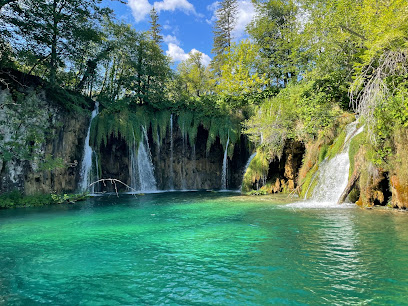
Trsat Castle
Explore the historic Trsat Castle in Rijeka: panoramic views, medieval architecture, and a glimpse into Croatia's captivating past.
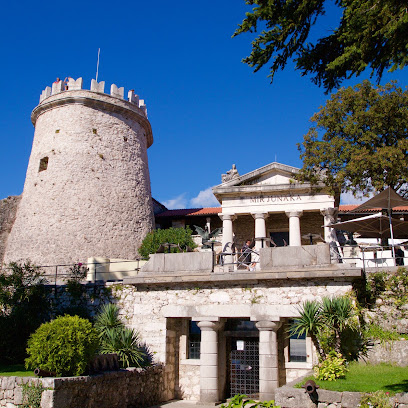
Nature Park Učka
Discover breathtaking views, diverse trails, and rich biodiversity in Učka Nature Park, where Istria's mountains meet the Adriatic coast.
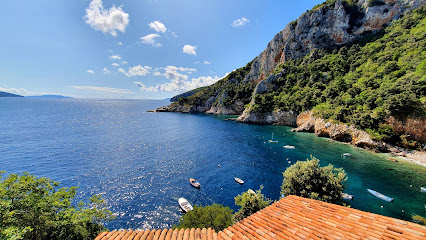
Oprna Bay
Discover Oprna Bay: A hidden paradise on Krk Island with crystal-clear waters, stunning scenery, and a tranquil escape from the everyday hustle.
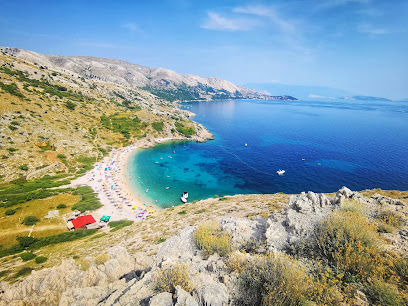
Suha Punta Beach
Discover Suha Punta Beach: Rab's serene escape with crystal-clear waters, lush greenery, and a tranquil atmosphere for ultimate relaxation.
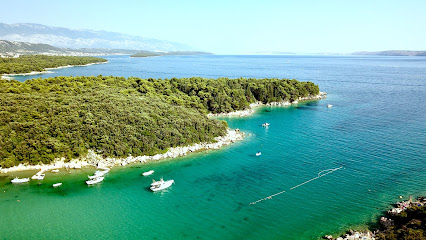
Beach Sipar
Discover Beach Sipar in Mošćenička Draga: a stunning Croatian beach with crystal-clear waters, perfect for relaxation and family fun.
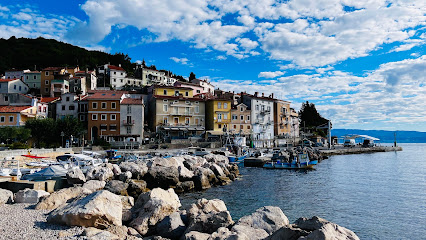
Vela luka
Discover Vela Luka: A hidden gem near Baška with stunning beaches, crystal-clear waters, and breathtaking hiking trails.
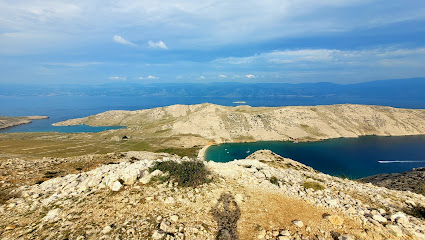
Plaža Punta Debij
Discover Plaža Punta Debij in Punat, Krk: a Blue Flag beach with turquoise waters, family fun, water sports, and a relaxing Mediterranean vibe.
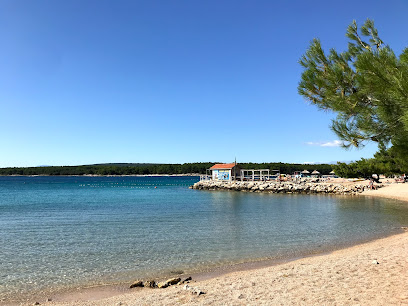
Kvarner Bay
Experience the breathtaking beauty of Kvarner Bay, a serene coastal paradise in Croatia, perfect for relaxation and adventure.
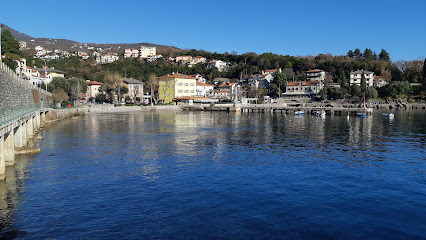
Valun Beach
Discover Valun Beach on Cres Island: a picturesque pebble beach with crystal-clear waters, perfect for a tranquil escape.
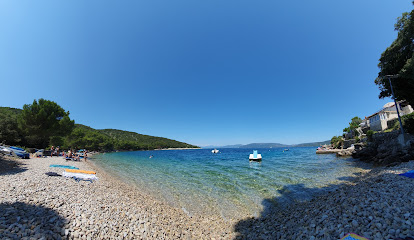
Uvala Bracol
Experience authentic Croatian cuisine with breathtaking Adriatic views at Uvala Bracol in beautiful Baška. A culinary gem you won't want to miss!
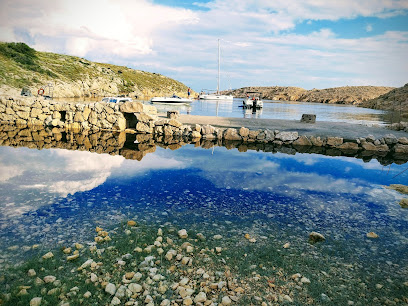
Dubac beach
Escape to Dubac Beach in Lopar, Rab: golden sands, crystal waters, and serene Adriatic beauty await!
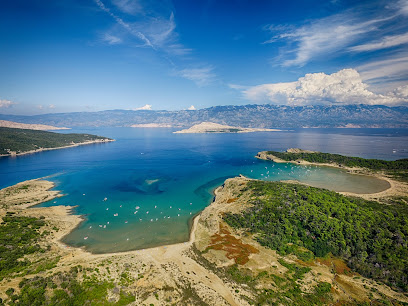
Beach Stara Baska
Experience the serene beauty of Beach Stara Baška, a stunning public bath in Croatia known for its clear waters and breathtaking landscapes.
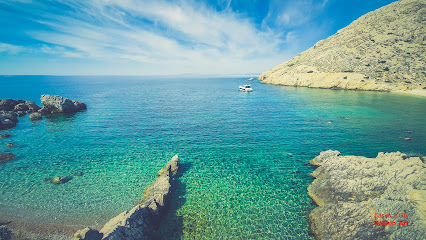
Kalifront
Explore Kalifront: Rab Island's green paradise with ancient forests, scenic trails, and hidden beaches along the Adriatic coast.
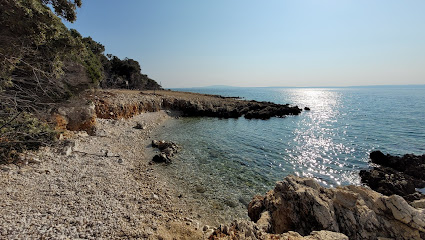
KVARNER D.O.O.
Explore the rich maritime heritage and craftsmanship at Kvarner D.O.O. Shipyard in Rab, where tradition meets beauty.
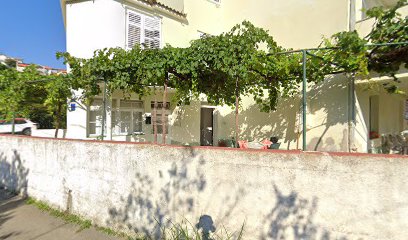
Unmissable attractions to see
Church of Mary of God of Trsat
Explore the Church of Mary of God of Trsat, a breathtaking sanctuary offering stunning views and deep spiritual significance in the heart of Rijeka.
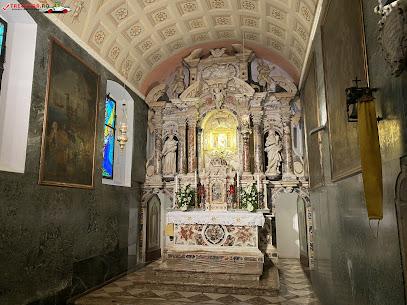
Plaža Pudarica
Experience the tranquility of Plaža Pudarica, a stunning public beach in Barbat, Croatia, perfect for relaxation and family fun amidst nature's beauty.
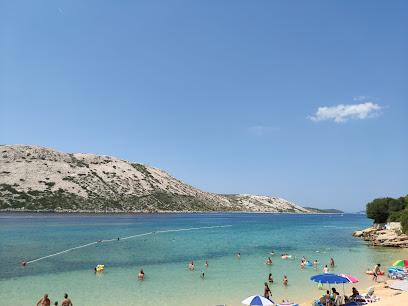
Kastel Baska
Explore Kastel Baška, a historic fortress in Baška, Croatia, that offers stunning views, rich history, and cultural experiences.
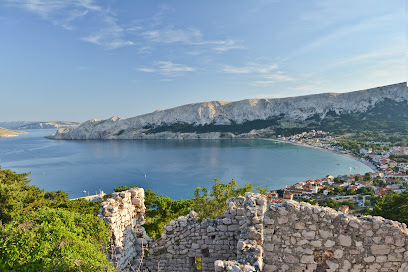
Tropical aquarium Krk
Discover the vibrant marine life and interactive exhibits at Tropical Aquarium Krk - a must-visit family-friendly attraction in Croatia.
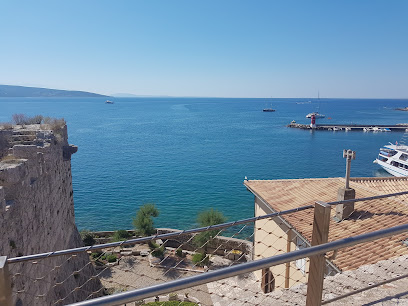
Susak
Experience the serene beauty and sandy shores of Susak Island, a hidden gem in Croatia perfect for relaxation and cultural exploration.
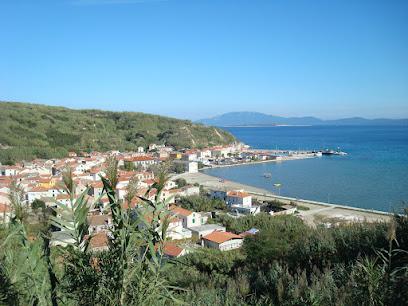
Uvala Kale
Discover the serene beauty of Uvala Kale, a hidden public beach in Šišan, perfect for relaxation, swimming, and unforgettable sunsets.
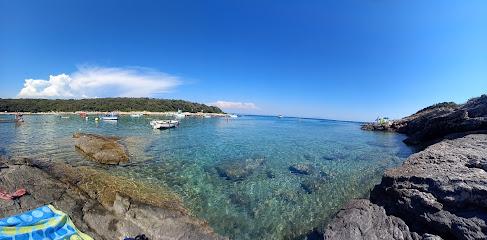
Bag (panorama)
Experience breathtaking views and serene landscapes at the Bag panorama in Batomalj, a must-visit destination for nature lovers and photographers.
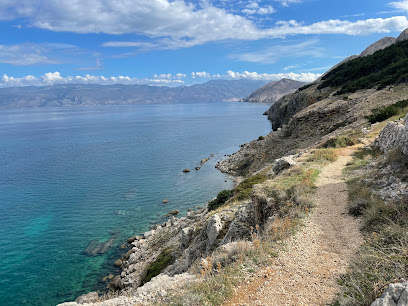
Mali Bok
Explore Mali Bok, a stunning nature preserve along Croatia's coastline, where breathtaking views and serene landscapes await every traveler.
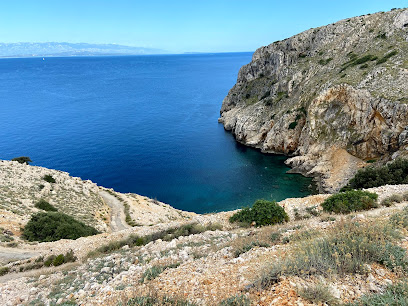
Franciscan Monastery Trsat
Explore the Franciscan Monastery Trsat: A historical gem in Rijeka offering stunning views, rich culture, and serene spirituality.
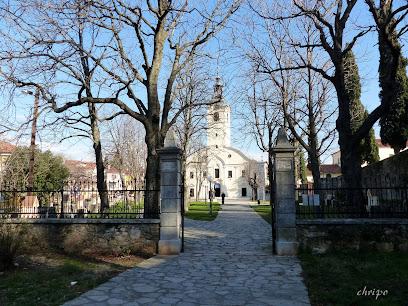
Faro
Explore the picturesque landscapes and rich cultural heritage of Faro, a hidden gem in Croatia's beautiful Batomalj region.
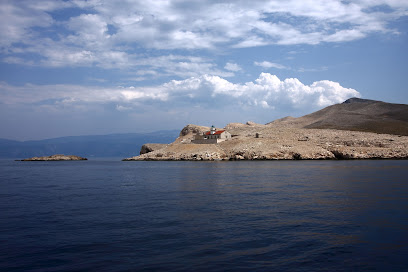
Plaża Borków
Explore the stunning beauty and tranquility of Plaża Borków, a hidden coastal gem in Stara Baška, Croatia, perfect for relaxation and adventure.
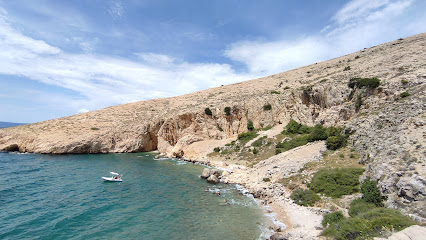
Oprna mini beach
Discover the tranquil beauty of Oprna Mini Beach in Stara Baška, a hidden gem perfect for relaxation and outdoor exploration.
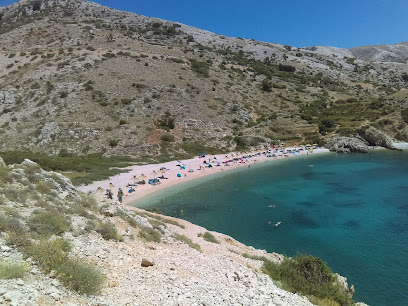
Dolina kamenih natpisa
Discover the enchanting Dolina Kamenih Natpisa in Stara Baška, where stunning stone inscriptions and breathtaking landscapes await every traveler.
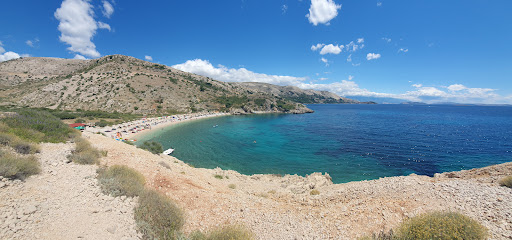
Idyllische Bucht
Experience the tranquility and natural beauty of Idyllische Bucht, a hidden gem in Batomalj, Croatia, perfect for relaxation and outdoor adventures.
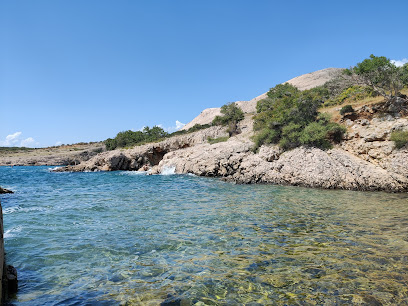
Beach of Romantik
Experience the breathtaking beauty of the Beach of Romantik in Stara Baška, Croatia, where tranquility meets adventure on stunning shores.
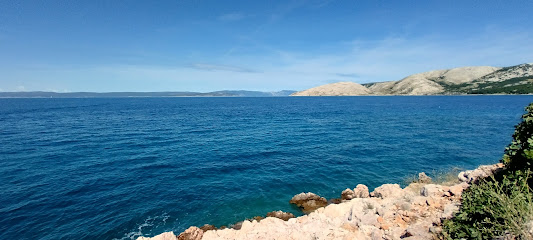
Essential places to dine
Konoba Šime
Discover Konoba Šime: A culinary treasure in Krk serving authentic Croatian dishes amidst a charming atmosphere.
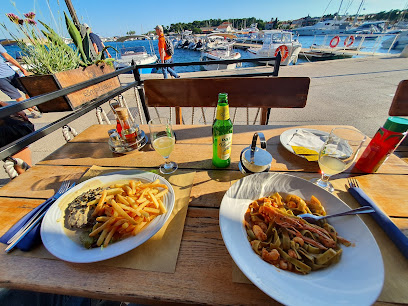
Frankopan restaurant
Experience exquisite seafood and Mediterranean flavors at Frankopan Restaurant in Krk – where culinary tradition meets breathtaking views.
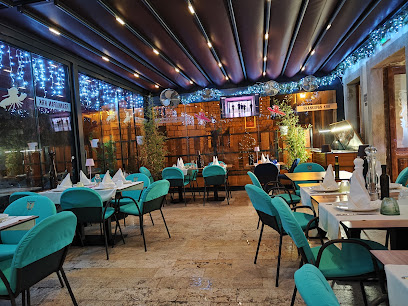
Gonar Restaurant
Discover authentic Croatian cuisine at Gonar Restaurant in Supetarska Draga—where delicious flavors meet stunning views.
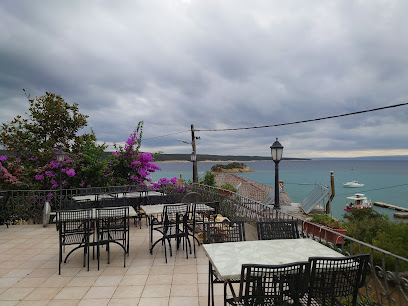
Veja's
Experience authentic Croatian cuisine at Veja's in Krk – where every dish tells a story and every meal is a celebration.
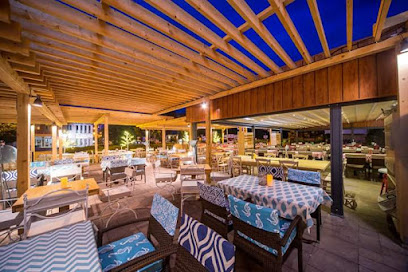
Restoran Laguna | Lopar
Experience authentic Croatian flavors at Restoran Laguna in Lopar - a must-visit dining destination for seafood lovers.
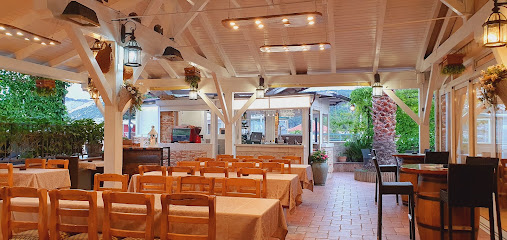
Citta Vecchia
Discover Citta Vecchia in Krk – where local flavors meet inviting ambiance for an unforgettable dining experience.

Panorama
Discover breathtaking views and authentic Croatian flavors at Panorama - Krk's premier dining destination offering exquisite Mediterranean cuisine.
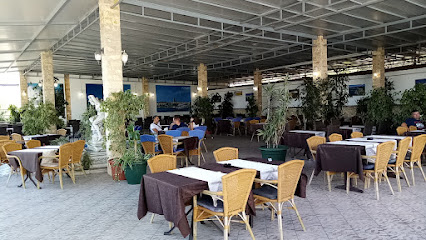
Restoran Mošuna
Experience authentic Croatian cuisine at Restoran Mošuna in Draga Bašćanska – where fresh ingredients meet breathtaking views.
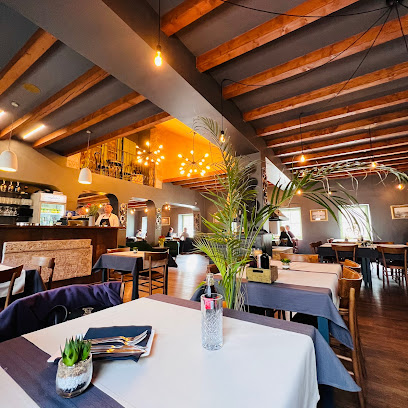
Restaurant Arta
Experience authentic Croatian cuisine at Restaurant Arta in Lopar - where local flavors meet stunning coastal views.
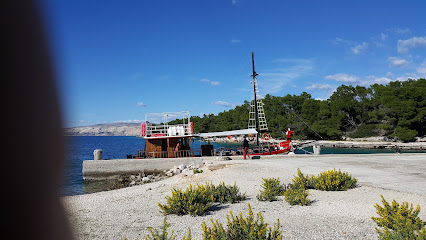
Restaurant More
Experience the best of Croatian cuisine at Restaurant More in Supetarska Draga – where tradition meets flavor amidst stunning coastal views.
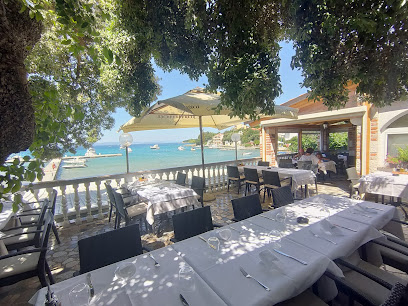
Malo misto wine & dine
Discover exquisite local cuisine and fine wines at Malo Misto Wine & Dine in Krk - where every meal is a celebration of flavor.
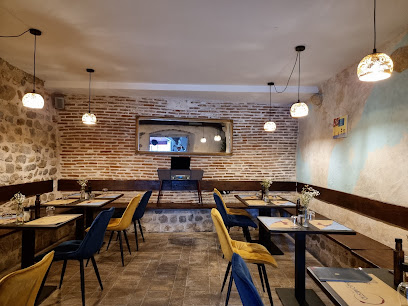
Restoran Vele vode
Experience authentic Croatian cuisine at Restoran Vele Vode in Punat - where fresh ingredients meet stunning coastal views.
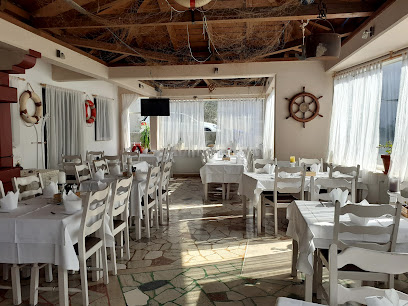
Hotel-Restaurant Pivac
Experience authentic Croatian flavors amidst stunning views at Hotel-Restaurant Pivac in Supetarska Draga.
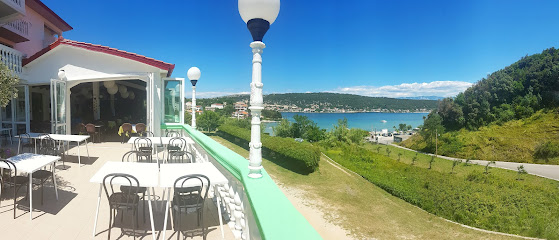
K Ribaru
Experience authentic Croatian cuisine with fresh seafood at K Ribaru in Punat - a culinary gem on your travel journey.
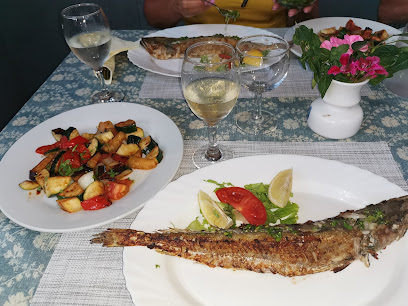
Vista Restaurant by Zlatni Zalaz
Experience exquisite Croatian cuisine with stunning sea views at Vista Restaurant by Zlatni Zalaz in Supetarska Draga.
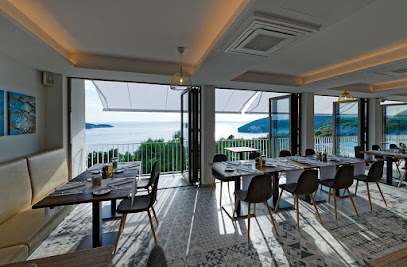
Markets, malls and hidden boutiques
TIN ART GIFT SHOP PUNAT, OTOK KRK
Explore TIN ART GIFT SHOP in Punat for authentic souvenirs and exquisite local craftsmanship on the beautiful island of Krk.
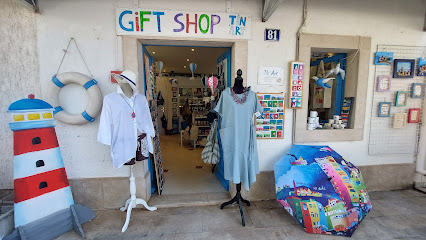
T.O. Memento
Explore T.O. Memento in Krk for stylish clothing, great discounts, and a friendly shopping experience that will elevate your travel wardrobe.
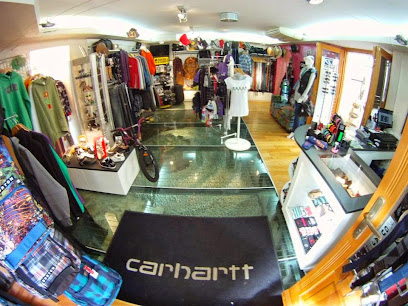
Michael
Explore the elegance of Michael's Jewelry Store in Krk, where exquisite craftsmanship meets a warm shopping experience.
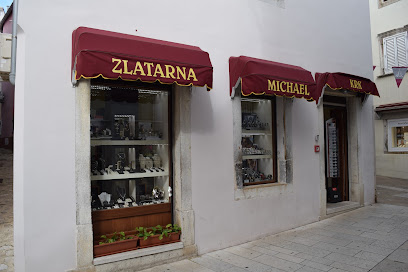
Kiki Handmade Souvenirs
Explore Kiki Handmade Souvenirs in Baška, where every handcrafted item embodies the artistry and spirit of Croatian culture.
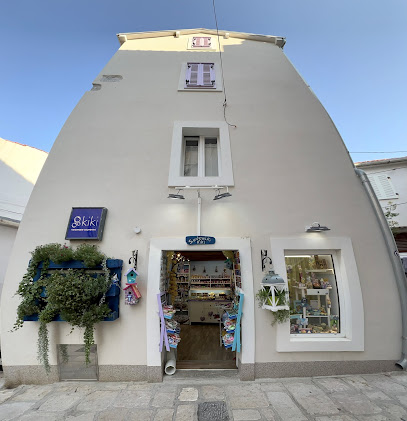
Dolac
Discover Dolac in Stara Baška: A charming grocery store brimming with local produce, delicacies, and essential holiday items for every traveler.
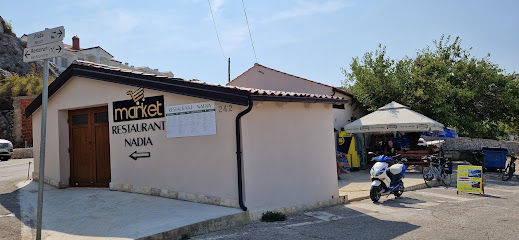
Arca Noa
Explore Arca Noa in Krk for unique Croatian souvenirs and handcrafted gifts that embody the charm of this beautiful island.
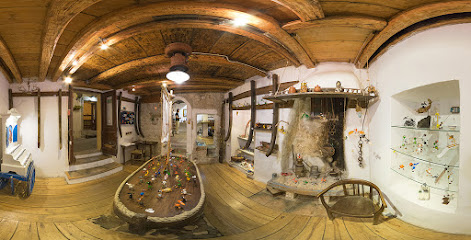
Soho
Explore Soho in Krk for unique gifts and local crafts, perfect souvenirs to bring the charm of Croatia back home.

Store In Camp
Explore Stara Baška's culinary delights at Store In Camp, your one-stop grocery store for fresh produce and local specialties.
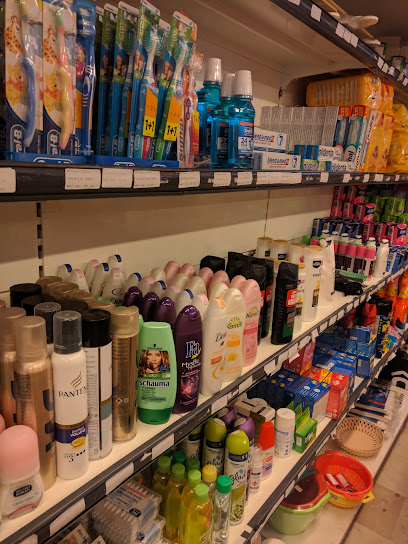
Yachting time and shoes
Discover nautical elegance at Yachting Time and Shoes, a boutique in Krk offering stylish footwear and accessories for your coastal adventures.
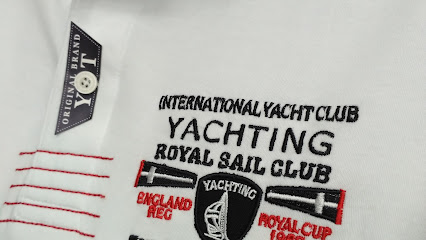
Souvenir Shop Nonna
Explore Souvenir Shop Nonna in Rab, Croatia, for authentic gifts and unique keepsakes that celebrate local craftsmanship and culture.
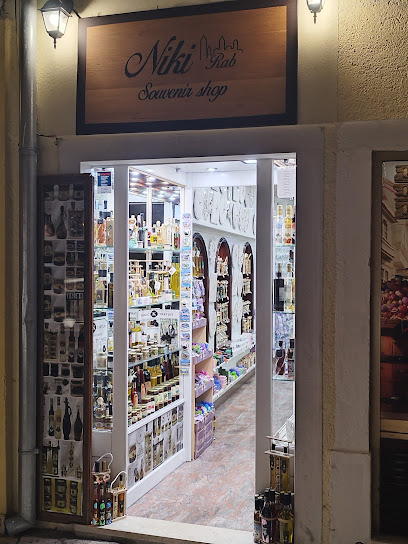
OLIVA handmade shop
Explore the charm of OLIVA Handmade Shop in Krk, offering unique gifts crafted by local artisans that embody Croatian culture.
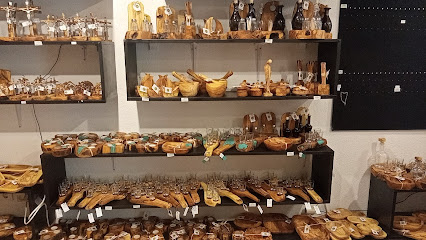
Gift stall #2
Discover unique souvenirs and local crafts at Gift Stall #2, a charming gift shop in the heart of Punat, Croatia.
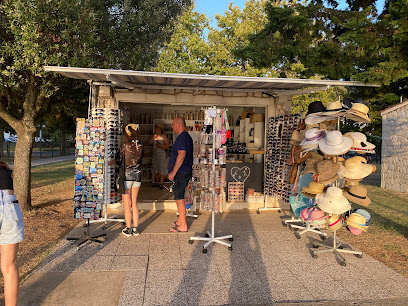
Ilkom Krk
Explore Ilkom Krk for unique souvenirs that capture the essence of Croatian culture and craftsmanship in the heart of Krk.
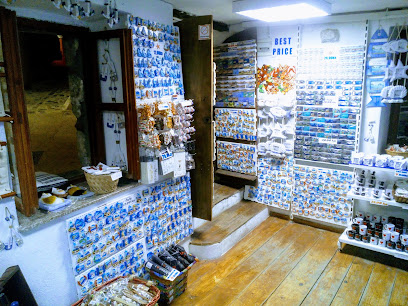
KORA
Discover KORA in Krk: Your go-to shop for organic products, unique gifts, and exquisite teas in a charming coastal setting.
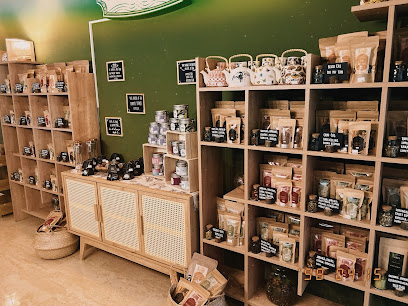
Portun
Explore Portun Gift Shop in Krk for unique souvenirs and local crafts that capture the essence of this beautiful Croatian destination.
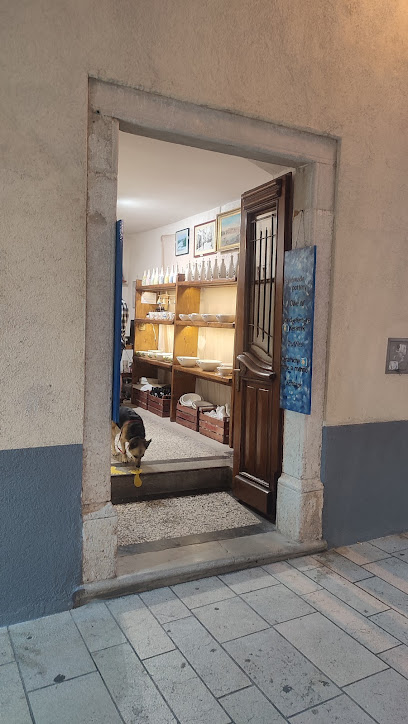
Essential bars & hidden hideouts
The Secret Garden
Discover The Secret Garden in Krk, where expertly crafted cocktails meet a lush, enchanting ambiance perfect for relaxation and socializing.
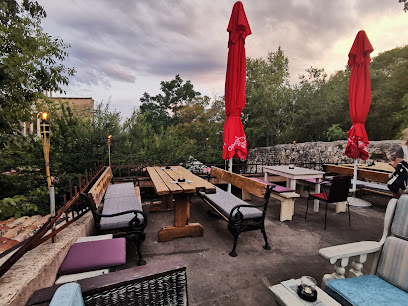
Volsonis
Experience the vibrant nightlife and delectable cuisine at Volsonis, a top bar and restaurant in the heart of Krk, Croatia.
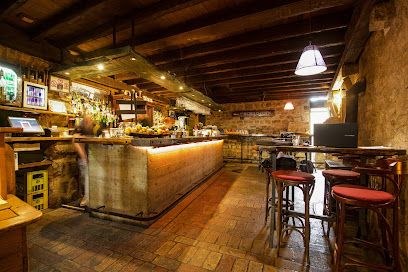
Beach Bar & Grill Jert
Discover the ultimate beachside dining experience at Beach Bar & Grill Jert, where delicious grilled dishes meet stunning Adriatic views.
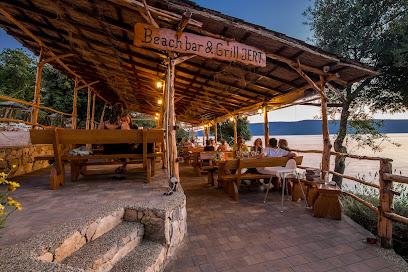
Beach Bar Saint Dunat
Experience the perfect coastal escape at Beach Bar Saint Dunat, where stunning views and delicious local cuisine await you in Kornić.
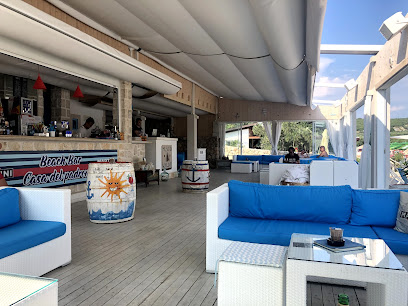
Beach Bar Mocca
Relax at Beach Bar Mocca in Pinezići, savoring grilled delights and refreshing drinks amidst breathtaking Adriatic views.
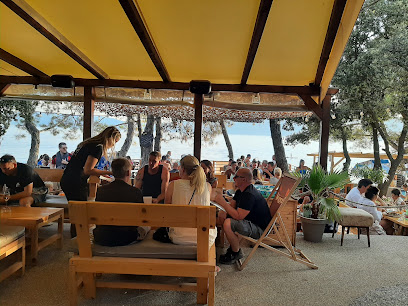
Caffe Bar Mare
Experience the charm of Caffe Bar Mare, a coastal gem in Krk, offering stunning views and a diverse drink menu in a relaxed atmosphere.
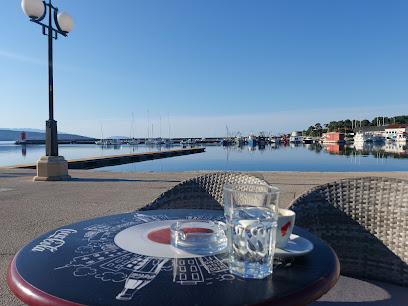
Pub Tiffany
Discover the vibrant nightlife of Krk at Pub Tiffany, where great drinks and a lively atmosphere await you on this beautiful Croatian island.
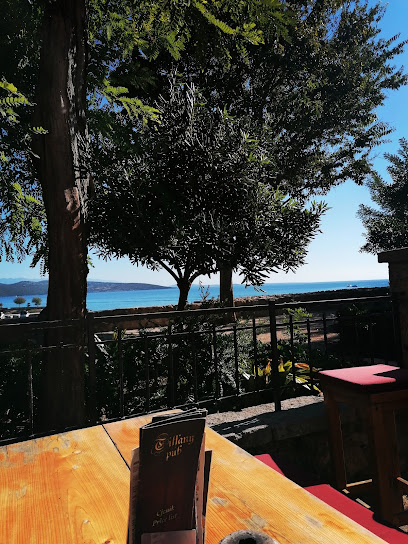
Beach bar ORAO
Discover Beach Bar ORAO in Punat, the ultimate seaside retreat offering refreshing drinks and breathtaking views of the Adriatic Coast.
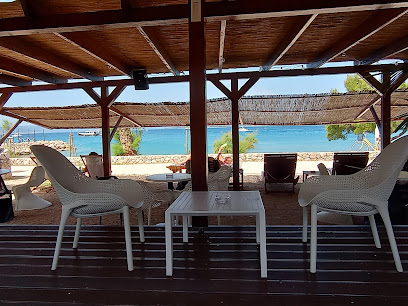
Sottobateria Lounge
Discover Sottobateria Lounge in Krk: A cozy bar and coffee shop perfect for relaxation with exceptional drinks and a warm ambiance.
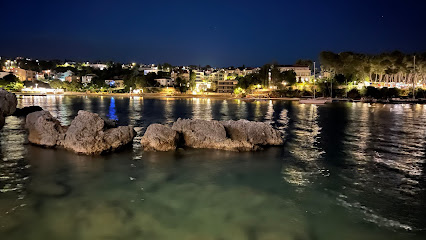
Lungo mare splash beach bar
Experience the vibrant atmosphere and stunning views at Lungo Mare Splash Beach Bar, the perfect seaside escape in Krk.
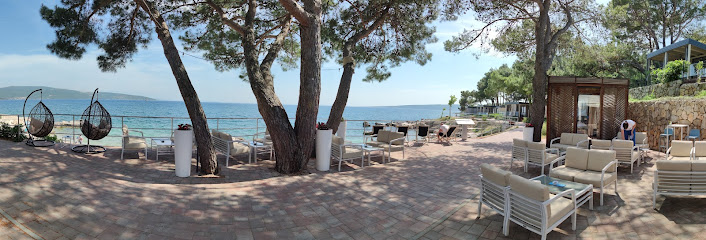
Beach Bar Karaka
Enjoy breathtaking views and a vibrant atmosphere at Beach Bar Karaka on Krk Island, Croatia's ultimate paradise for relaxation and fun.
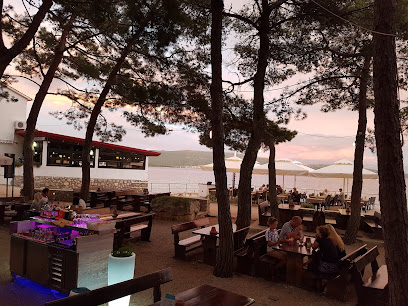
Beach Bar Cristallo
Experience the perfect blend of stunning views and delicious grilled dishes at Beach Bar Cristallo, a must-visit spot in Krk.
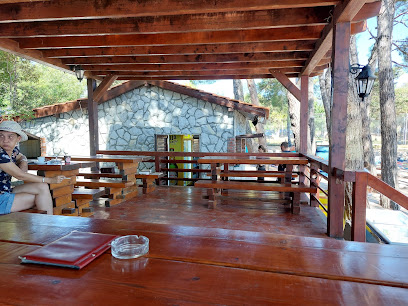
Beach Bar Politin
Discover the idyllic Beach Bar Politin in Krk, where stunning sea views meet delightful refreshments in a relaxing atmosphere.
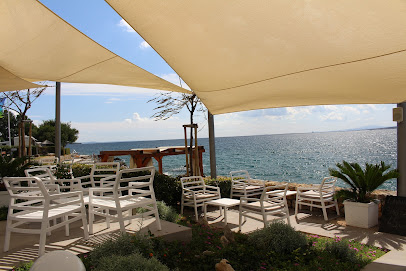
Coctail bar Smokvica
Discover the lively Smokvica Cocktail Bar in Krk, where local flavors blend with classic cocktails in a vibrant atmosphere perfect for socializing.
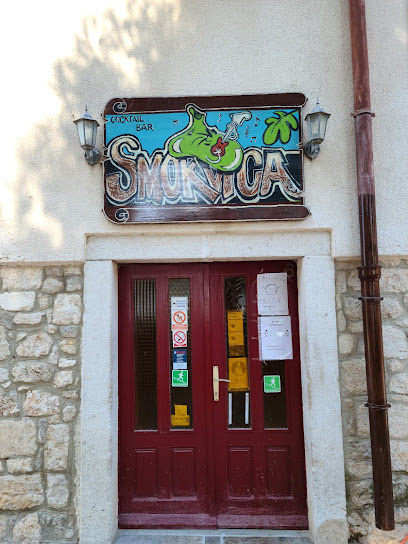
Local Phrases about Kvarner Gulf
-
- HelloBok
[Bohk] - GoodbyeDoviđenja
[Doh-vee-jen-ya] - YesDa
[Dah] - NoNe
[Neh] - Please/You're welcomeMolim
[Moh-leem] - Thank youHvala
[Hvah-lah] - Excuse me/SorryOprosti
[Oh-pros-tee] - How are you?Kako si?
[Kah-koh see?] - Fine. And you?Dobro. A ti?
[Doh-broh. Ah tee?] - Do you speak English?Govoriš li engleski?
[Goh-voh-reesh lee ehn-gleh-skee?] - I don't understandNe razumijem
[Neh rah-zoo-mee-yem]
- HelloBok
-
- I'd like to see the menu, pleaseMogu li vidjeti jelovnik, molim?
[Moh-goo lee vee-dyeh-tee yeh-lohv-neek, moh-leem?] - I don't eat meatNe jedem meso
[Neh yeh-dem meh-so] - Cheers!Živjeli!
[Zhee-vyeh-lee] - I would like to pay, pleaseŽelio bih platiti, molim
[Zheh-lee-oh bee plah-tee-tee, moh-leem]
- I'd like to see the menu, pleaseMogu li vidjeti jelovnik, molim?
-
- Help!Pomoć!
[Poh-mohch!] - Go away!Otiđi!
[Oht-ee-jdee!] - Call the Police!Pozovi policiju!
[Poh-zoh-vee poh-lee-tsee-yoo!] - Call a doctor!Pozovi doktora!
[Poh-zoh-vee dohk-toh-rah!] - I'm lostIzgubio/la sam se
[Eez-goo-byoh/lah sahm seh] - I'm illBolestan/sna sam
[Boh-leh-stahn/snah sahm]
- Help!Pomoć!
-
- I'd like to buy...Želim kupiti...
[Zheh-leem koo-pee-tee] - I'm just lookingSamo gledam
[Sah-moh gleh-dahm] - How much is it?Koliko košta?
[Koh-lee-koh koh-shta?] - That's too expensiveTo je pre skupo
[Toh yeh preh skoo-poh] - Can you lower the price?Možete li spustiti cijenu?
[Moh-zheh-teh lee spoos-tee-tee tsee-yeh-noo?]
- I'd like to buy...Želim kupiti...
-
- What time is it?Koliko je sati?
[Koh-lee-koh yeh sah-tee?] - It's one o'clockJedan je sat
[Yeh-dahn yeh saht] - Half past (10)Pola (deset)
[Poh-lah (deh-set)] - MorningJutro
[Yoo-troh] - AfternoonPopodne
[Poh-pohd-neh] - EveningVečer
[Veh-chehr] - YesterdayJučer
[Yoo-cher] - TodayDanas
[Dah-nahs] - TomorrowSutra
[Soo-trah] - 1Jedan
[Yeh-dahn] - 2Dva
[Dvah] - 3Tri
[Tree] - 4Četiri
[Cheh-tee-ree] - 5Pet
[Peh-t] - 6Šest
[Shehst] - 7Sedam
[Seh-dahm] - 8Osam
[Oh-sahm] - 9Devet
[Deh-vet] - 10Deset
[Deh-set]
- What time is it?Koliko je sati?
-
- Where's a/the...?Gdje je...?
[Gdyeh yeh...?] - What's the address?Koja je adresa?
[Koh-yah yeh ah-deh-sah?] - Can you show me (on the map)?Možete li mi pokazati (na karti)?
[Moh-zheh-teh lee mee poh-kah-zah-tee (nah kahr-tee)?] - When's the next (bus)?Kada je sljedeći (autobus)?
[Kah-dah yeh sleh-deh-chee (ow-toh-boos)?] - A ticket (to ....)Jednu kartu (za ....)
[Yeh-dnoo kahr-too (zah ....)]
- Where's a/the...?Gdje je...?
History of Kvarner Gulf
-
The Kvarner Gulf has a rich history dating back to ancient times. The area was first settled by the Illyrians, an ancient group of tribes. Evidence of their presence can be found in various archaeological sites across the region, including hillforts and burial mounds. The Greek and Roman influences soon followed, with the establishment of trade routes and ports, such as the significant Roman settlement of Tarsatica, present-day Rijeka.
-
During the medieval period, the Kvarner Gulf became a battleground for various empires and kingdoms vying for control. The region was under the influence of the Byzantine Empire until the arrival of the Slavs in the 7th century. By the 9th century, the area was incorporated into the Kingdom of Croatia. The city of Rijeka, known as Fiume in Italian, began to flourish during this time, becoming a significant maritime and trade center.
-
The Kvarner Gulf experienced a period of Venetian rule from the 15th to the 18th century. The Republic of Venice had a substantial influence on the architecture, culture, and commerce of the region. The island of Krk, in particular, became an important Venetian stronghold. Many coastal towns, such as Opatija and Lovran, still bear the architectural marks of this period, with their charming Venetian Gothic and Renaissance buildings.
-
In the late 18th century, the Kvarner Gulf came under the control of the Habsburg Monarchy. This period saw significant economic and social development in the region. The Austro-Hungarian Empire invested heavily in infrastructure, leading to the rise of Rijeka as one of the most important ports in the empire. The coastal town of Opatija became a fashionable resort destination for the European elite, known for its elegant villas, grand hotels, and beautiful promenades.
-
The turbulence of the 20th century left its mark on the Kvarner Gulf. During World War I, the region was a strategic naval hub, and Rijeka was heavily contested. Following the war, the Treaty of Rapallo in 1920 assigned Rijeka to Italy, creating tensions with the local Croatian population. World War II brought further turmoil, with the Kvarner Gulf witnessing significant military activity and suffering from occupation and conflict. After the war, the region became part of the Socialist Federal Republic of Yugoslavia.
-
Since the breakup of Yugoslavia in the early 1990s, the Kvarner Gulf has been part of the independent Republic of Croatia. The region has successfully transitioned to a popular tourist destination, known for its stunning coastline, historical towns, and vibrant culture. The city of Rijeka was designated as the European Capital of Culture for 2020, highlighting its rich cultural heritage and dynamic contemporary scene.
Kvarner Gulf Essentials
-
Kvarner Gulf can be accessed through several major transportation hubs. The closest international airport is Rijeka Airport (RJK), located on the island of Krk and connected by a bridge to the mainland. From Rijeka Airport, you can take a taxi, shuttle bus, or rent a car to reach various destinations within the Kvarner Gulf. Alternatively, Zagreb's Franjo Tuđman Airport (ZAG) is another option, approximately a two-hour drive from Kvarner Gulf. Train and bus services are also available from major European cities to Rijeka, the largest city in the region.
-
Within Kvarner Gulf, public transportation options include buses, ferries, and taxis. The regional bus network connects major towns and tourist spots, while local ferries provide connections between the mainland and islands such as Krk, Cres, and Lošinj. Renting a car is a convenient way to explore the area at your own pace, especially if you plan to visit remote locations. Taxis are readily available but can be more expensive. Cycling is also popular, with numerous bike rental services and dedicated cycling paths.
-
The official currency in Croatia is the Croatian Kuna (HRK). Credit cards are widely accepted in hotels, restaurants, and shops, but it's advisable to carry some cash, especially in smaller towns and rural areas. ATMs are plentiful in major towns and tourist areas, allowing you to withdraw cash as needed. Currency exchange services are available at airports, banks, and exchange offices.
-
Kvarner Gulf is generally considered a safe destination for tourists. However, as with any travel, it's important to take standard precautions. Be vigilant with your belongings in crowded places, such as markets and public transport. Avoid walking alone late at night in unfamiliar areas. While there are no specific high-crime neighborhoods targeting tourists, always be aware of your surroundings and avoid isolated areas after dark.
-
In case of an emergency, dial 112 for immediate assistance, which connects you to police, fire, and medical services. Hospitals and medical facilities are available in major towns like Rijeka. It's recommended to have travel insurance that covers medical emergencies. Pharmacies are well-stocked for minor health issues. Always carry a copy of your identification and important contact numbers.
-
Fashion: Do dress comfortably but modestly in public places. Swimwear is acceptable at the beach but not in town centers. Religion: Do respect religious sites by dressing modestly and maintaining a quiet demeanor. Public Transport: Do validate your bus ticket upon boarding and be courteous to fellow passengers. Avoid loud conversations and keep your belongings close. Greetings: Do greet people with a friendly 'Dobar dan' (Good day). A handshake is a common greeting gesture. Eating & Drinking: Do try local specialties like fresh seafood and regional wines. Don't rush your meals; dining is a leisurely and social activity.
-
To experience Kvarner Gulf like a local, visit the Rijeka Market for fresh produce and local delicacies. Engage with locals; they are often welcoming and eager to share their culture. Don't miss the opportunity to explore lesser-known villages and hidden beaches. Participating in local festivals and events can provide deeper insights into the culture and traditions of the region. Renting a bike or taking a hike in the Učka Nature Park offers breathtaking views and a chance to connect with nature.
Nearby Cities to Kvarner Gulf
-
Things To Do in Pula
-
Things To Do in Rovinj
-
Things To Do in Koper
-
Things To Do in Zadar
-
Things To Do in Bihac
-
Things To Do in Postojna
-
Things To Do in Izola
-
Things To Do in Portorož
-
Things To Do in Trieste
-
Things To Do in Sežana
-
Things To Do in Piran
-
Things To Do in Ljubljana
-
Things To Do in Nova Gorica
-
Things To Do in Škofja Loka
-
Things To Do in Kamnik












